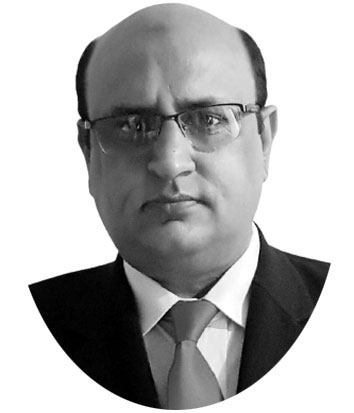Value-oriented research and quality of teaching
RESEARCH is a primary source of knowledge creation. It helps the re searchers to explore diversified dimensions and raise significant questions to formulate a foundation for knowledge creation and discovery.
The inventions that we see in recent times (and in the past) are developed as an outcome of value-oriented research.
The value-oriented research which is aligned with social and national needs is of great significance to any society.
In the developed countries research is used as an instrument of creating more knowledge and developing new products based on innovative ideas.
Quality research in high-impact areas, if not now, in the future, will differentiate between the developed and developing countries.
The value-oriented research begins with the definition of a problem statement of national need and the researchers compete for their proposals in national and/or international funding opportunities.
If the research proposal is granted, it is quite clear from the beginning that which SDGs shall be addressed, what will be the outcome, what are the possible milestones in achieving the ultimate objectives, and what areas of society will get benefited when the research is concluded.
Value-oriented research requires a deep understanding of the problem before the research proposal is even submitted.
The competitive and transparent process of proposal evaluation makes it possible that the funded project concludes successfully and contributes to national development. This model of research is more sustainable and can be seen as a value-oriented research model.
In developing countries, the need for value-oriented research is very high. The developing countries, to a larger extent, are doing research that is more count-focused.
In countries like Pakistan, research nowadays is a blessed and sacred activity, and there is nothing wrong if research is given such a high value.
The development of the country in general and the development of the society, in particular, depends on value-oriented research that has meanings and relevance to the society.
While the research gets an overwhelming applause, it is to be seen that the over-emphasis on research does not affect the quality of teaching.
It will be a vital concern if the undergraduate programs in the universities are not strong enough to be able to create considerable jobs for the graduates.
To strengthen the UG programs, the universities need to utilize the best faculty to teach at the UG level.
The over-emphasized research count is motivating the best faculty to teach only at MS/PhD level to engage the students in research thesis and publications.
Though this approach is helping the postgraduate stream yet the UG programmes need increasingly increased attention.
Sometimes, it is observed that the students use the MPhil and PhD programmes as a shelter against not being called jobless people.
Convincing the prominent teachers to teach at the undergraduate level is important and the undue focus on producing more research papers needs to be reduced both by the HEC and by the institutions.
To do this, redefinition of the KPIs is deemed necessary for the promotion of the TTS and the BPS faculty in the public sector universities of Pakistan.
A TTS faculty member has to publish more than ten papers in five odd years while the faculty members on the BPS have to work in the same manner to be able to eligible for their promotion to the next grade in some five years’ time.
In many cases, and leaving the exceptions aside, providing quality in teaching and conducting value-oriented research simultaneously is a tough ask for many faculty members (if not all).
The institutions need to have more rigorous reviews of the quality of teaching inside the classrooms.
One constructive measure that can be used in this regard, is to use the Outcome-Based Education (OBE) system which provides an in-build mechanism to improve the quality of teaching through Continual Quality Improvement (CQI) reviews.
The other measure in this regard is to observe the employability ratio and to perform a consistent and continuous enhancement in the syllabus to align it with the market needs.
It seems to be a good time to rethink the definition of the KPIs for the promotion of the faculty members to the next grade.
The research publications seem to be an over-emphasized criterion which has outnumbered many significant aspects of a good university teacher.
Even in the research dimension, apart from the number of publications only, there can be many other indicators like h-index, the number of citations, number of funded projects won, development of national/international collaboration and linkages, and the individual impact factor of a researcher are more reflective when it comes to evaluating a faculty member for promotion.
There is absolutely no doubt that good, valuable, nationally aligned and socially impactful research should be given considerable weightage and value, but it should also be evaluated that does most of the research being done in the country meet this simplistic criterion of being good, valuable, nationally aligned and socially impactful? It is wonderful if it does, and sad if it doesn’t. However, if it doesn’t, it raises a deep question: why a specific research is being done?
—The author is an Associate Professor of Computing at NUML Islamabad:










